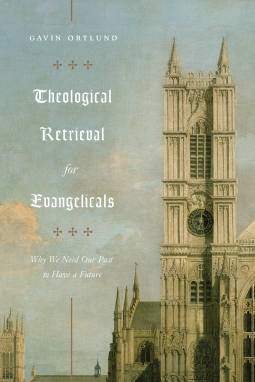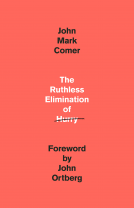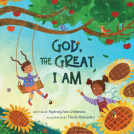
Theological Retrieval for Evangelicals
Why We Need Our Past to Have a Future
by
This title was previously available on NetGalley and is now archived.
Send NetGalley books directly to your Kindle or Kindle app
1
To read on a Kindle or Kindle app, please add kindle@netgalley.com as an approved email address to receive files in your Amazon account. Click here for step-by-step instructions.
2
Also find your Kindle email address within your Amazon account, and enter it here.
Pub Date Oct 29 2019 | Archive Date Oct 05 2019
Talking about this book? Use #TheologicalRetrievalForEvangelicals #NetGalley. More hashtag tips!
Description
This book aims to set forth a vision for theological retrieval, demonstrating through specific doctrines how engaging historical theology can enrich and strengthen the church today—without abandoning a Protestant identity.
Advance Praise
“In an age of head-spinning change, Gavin Ortlund rightly calls evangelicals to stand their ground and recover the theological ground already plowed by earlier generations. When the very foundations are being shaken, it is vital that churches recover their center of gravity by retrieving the past—what Bernard Ramm once called ‘the evangelical heritage.’ Evangelicals are not the first generation to have received the gospel. Accordingly, Ortlund here issues a manifesto about the importance of retrieving theological tradition. He then practices what he preaches in a series of astute case studies that mine the past to fund the present.” —Kevin J. Vanhoozer, Research Professor of Systematic Theology, Trinity Evangelical Divinity School; author, The Drama of Doctrine; Hearers and Doers; Biblical Authority after Babel; and Faith Speaking Understanding “Anyone convinced that evangelical and ancient are opposites should read this book. Gavin Ortlund provides a compelling case for retrieving patristic and medieval theology. Mining the premodern tradition, Ortlund reminds us of neglected and forgotten insights on the creator-creature distinction, divine simplicity, and atonement theology. An excellent contribution to Protestant retrieval theology!” —Hans Boersma, Chair, Order of St. Benedict Servants of Christ Endowed Professorship in Ascetical Theology, Nashotah House Theological Seminary “Ortlund argues compellingly that evangelicals can and should claim the classic theological heritage as their own. And then he actually does it, opening up the treasury of the great Christian tradition and dispensing theological wisdom with both hands. To look into this book is to look through a doorway into a world where there is such a thing as evangelical theology that is richly resourced, deeply informed, and ready for action.” —Fred Sanders, Professor of Theology, Torrey Honors Institute, Biola University; author, The Deep Things of God: How the Trinity Changes Everything “Gavin Ortlund, a committed evangelical, calls for a robust engagement with the first fifteen hundred years of the Christian tradition, patristic and medieval, East and West. Retrieval, not repristination, is the goal, and Ortlund shows here how this can be done—to the glory of God and the upbuilding of the church. An exciting and important book!” —Timothy George, Research Professor, Beeson Divinity School, Samford University; general editor, Reformation Commentary on Scripture “For those who struggle with whether, how, and why to appropriate the church fathers and medieval doctors within their own theology, piety, and ministry, this book is a welcome resource. Leading us by the hand through a wide range of instructive examples, Gavin Ortlund demonstrates a principled Protestant approach to drawing upon the pastors and theologians of the past for the sake of the church’s renewal in the present.” —Scott R. Swain, President and James Woodrow Hassell Professor of Systematic Theology, Reformed Theological Seminary, Orlando; coauthor, Reformed Catholicity
Available Editions
| EDITION | Other Format |
| ISBN | 9781433565267 |
| PRICE | $21.99 (USD) |
Average rating from 3 members
Featured Reviews
 Curtis C, Reviewer
Curtis C, Reviewer
I have often heard it said “those who do not learn from history are doomed to repeat it”. It is a good phrase. Yet the irony is it is often repeated without knowing the real history of who said it. Thank you George Santayana by the way as he first said something similar.
The point is we often repeat issues because we don’t know the mistakes or even successes of the past.
This book provides a clear and well outlined call to seeing the need for both systematic theology that searches scripture. But alongside the retrieval of those who came before.
So often in our Protestant churches we ignore our pasts. I am apart of a holiness denomination. Yet we were founded by an Anglican ministers desire to do ministry different. Occasionally I have seen my denomination create timelines that make Protestant churches appear to form at the same time as catholic ones. Yet we owe much of our theological foundation to the greats who came before: Augustine, Athenasius, and even Origen. We have thrown the theological baby out with the catholic bathwater.
It’s time for us to reclaim our history. To see the struggles of the councils, to hear the prayers of the dessert fathers and mothers, to hear the development of theology through the ages. When we do this we can better understand why we believe the way we do and thus not be swayed by the cultural religion that would never flown with the generations who came before us.
I received this ebook for free to give my honest opinions of.
If you are interested in understanding the need for theological retrieval I highly recommend this book
 H. C. N, Reviewer
H. C. N, Reviewer
This originally appeared at The Irresponsible Reader.
---
This is another one of those theological works that I feel really unqualified to discuss. There's part of me that thinks I should stop requesting them from NetGalley, or buying them and deciding that I want to post about them, but I probably won't. So, know that this is from the perspective of an opinionated and semi-(formally)educated reader and occasional armchair theologian. Not the reflections of an ordained minister or professional theologian.
I'm glad Ortlund talks about this right out of the gate—but the case he lays out for Theological Retrieval here, strikes me as very similar to Michael Allen and Scott R. Swain's Reformed Catholicity: The Promise of Retrieval for Theology and Biblical Interpretation and Kevin J. Vanhoozer's Biblical Authority after Babel: Retrieving the Solas in the Spirit of Mere Protestant Christianity. Ortlund says they're aiming for the same target, but those works are more oriented toward the Reformed, where he's focused on Evangelicalism. I'd say that they're all wanting the same thing, but his work is more accessible (by design) and less-inclined to advertise his scholarly awareness (particularly with the former).
One problem that you encounter right away is a nebulousness about the term "Evangelical." If Ortlund defined his usage, I missed it. He seems to use it to apply to Bible-believing Protestants who aren't Reformed or Lutheran. Which is fair enough, I guess, it's just not an easily defined term anymore. Frankly, I'm with Carl Trueman and others, and consider the label "evangelicalism" meaningless as it can be applied to “everyone from Joel Osteen to Brian McLaren to John MacArthur.”
Ortlund doesn't give a strict definition of Theological Retrieval—in fact, he avoids it, preferring to see it as a mindset or attitude toward the pre-Reformation Church and Theology, drawing from its strengths, seeing its weaknesses in our own, and putting the contemporary (and Reformation) Church in context of a developing understanding from the end of Acts to Second Coming. Given that, we should be more aware of, and interact more with, the Patristic and Medieval Church. He uses Turretin, in particular, to great benefit in showing that this was the mindset of the Protestant Reformation, and calls us back to it. Along the way, he uses Warfield (and the rest of Old Princeton) as emblematic of Evangelicalism's departure from this thinking. I'm not sure that's the best reading of Warfield, but it's not worth arguing, because his overall point is so right.
The first Part of the book—roughly 60 pages in three chapters—sets the agenda, it's "A Manifesto for Theological Retrieval." He begins by asking if Evangelicals can Retrieve Patristic and Medieval Theology, before moving to asking why they need it, and then sketching out both the benefits and perils of it. All of which is profitable and well-worth reading.
But what makes this book different than so many, is that Ortlund doesn't focus on the project, the theory behind it, or the method. He gives the rest of the book—120 pages or so—to examples of what he's calling for people to do. Case-studies in theological retrieval—which is some of the best theological reading I've done this year, maybe the last couple of years.
The first is a chapter called "Explorations in a Theological Metaphor: Boethius, Calvin, and Torrance on the Creator/ Creation Distinction." A nice mouthful, to be sure. To illustrate the Creator/Creature Distinction, he compares Tolkein's relationship to The Lord of the Rings to God's relationship to his creation, in terms of Boethius' understanding, and how Calvin's view would differ, before wrapping up with Torrance. Now, I have little use for what he tries to do with Tolkein—I think this sort of thing is almost as bad as trying to teach the Trinity by analogy (which always quickly lands the teacher in heresy). I know enough people do this sort of thing in teaching and writing, and I should try to pay more attention, but my eyes just glazed over. Most readers will get more out of this than I did. I did appreciate what he said about Boethius and Torrance in distinction from Calvin and feel like I understand the three a little better (not that I'm all that familiar with Boethius and Torrance), and think I got something from the chapter overall, but I know my own prejudices kept me from a full appreciation.
Things improve with "God Is Not a Thing: Divine Simplicity in Patristic and Medieval Perspective." Rather than going head-on for contemporary critics of the doctrine, he takes a look at historic formulations (not limited to Aquinas') of the doctrine and seeing how that should actually deepen Evangelical's commitment to Simplicity as well as broaden our understanding of it. He interacts a good deal with James Dolezal's wonderful All That Is in God and God without Parts here and reminds me that I need to re-read the former and read the latter. A better blogger (one also focused on theology, not the book) would camp out here for a few paragraphs, but I won't. It's just a great chapter and the kind of thing we need to see more of.
My favorite case study is the third, "Substitution as Both Satisfaction and Recapitulation: Atonement Themes in Convergence in Irenaeus, Anselm, and Athanasius." I would read a book-length version of this tomorrow. Well, not tomorrow. I would start a book-length version of this tomorrow, and have a lot of fun over the following days. Ortlund shows the overlapping concerns of Irenaeus and Anselm (who are so often pitted against each other), how the Christus Victor and Substitutionary Atonement models are interdependent, not rivals (while not giving an inch to contemporary critics of Substitutionary Atonement, it should be pointed out). From there, he moves onto some of Athanasius' work on the Incarnation, demonstrating that these works have a good deal to say about the Atonement, as well. If I got nothing else out of this book, I'd consider the time I spent reading it well-spent just for this chapter. I could've lived without the use of Aslan and the Stone Table portion of the study, but (contra the Tolkein), it proved to be a useful illustration.
"Cultivating Skill in the “Art of Arts”: Pastoral Balance in Gregory the Great’s The Book of Pastoral Rule" is the last case study. I remember reading healthy portions of this work by Gregory in a Church History class for much the same reason that Ortlund uses it. There's a lot of wisdom for pastors of every age in this very old work—he also shows how manuals like Baxter's or Spurgeon's will say similar things. Timeless truths and advice put in ways that others wouldn't. I really don't have much to say about this, but it's almost as good as the previous two.
This is one of the most-easily outlined books I've read this year (possibly the most), that's a fantastic aid for referring back to it in the future or for going back and taking thorough notes. I'd go crazy if I read too many books like this, I prefer the more organic feeling approach. But when this is done right, it's a handy bonus. Beyond that, as I said before, it's very accessible. Sure, there are parts that are demanding, but nothing's out of reach for the committed and attentive reader—and most of the time you don't have to be that committed.
Like their counterparts from the previous century, Twenty-First Century Christians don't know enough historical doctrine, and certainly don't know how to treat what little they do know. Too often, Protestants will cede everything prior to 1517 to Rome (maybe Rome and the East), focusing only on the last 500 years—if they'll even pay attention to anything prior to Fanny J. Crosby. Ortlund's work is a great call for the everyday Christian to familiarize themselves with the past and learn from them as we ought the rest of the Church Militant. I strongly recommend this.
Disclaimer: I received this eARC from Crossway via NetGalley in exchange for this post—thanks to both for this stimulating read.
 Jeanie S, Reviewer
Jeanie S, Reviewer
Going back in history to the teachers of the past is most beneficial to any layperson as myself but more so for the pastor/teacher/deacon as they tend to have more responsibility of the flock. As this text was very intense and filled with footnotes, it was difficult for me to follow. However, what I could follow was insightful. The most insightful is how in tuned these teachers were to the human heart. Motives of the heart and the pitfalls that we can have. Mostly the deceitfulness of sin. How some virtues can lead to sin and ultimately pride that our so called virtues become our glory instead of Gods. I think of Christianity today and how unfulfilling it can be because it seems so shallow, however, good teaching really takes you to the presence of God and the working of the Holy Spirit. We you are left undone and seeing the reality that God is really all we have.
A Special Thank you to Crossway Publishing and Netgalley for the ARC and the opportunity to post an honest review.












